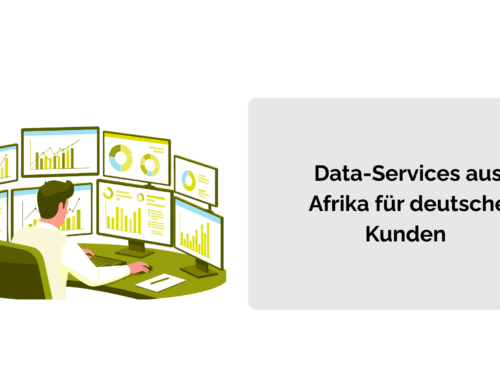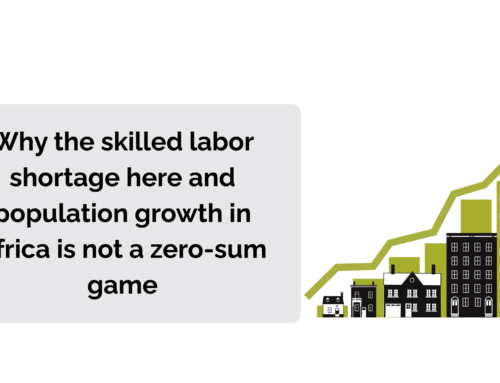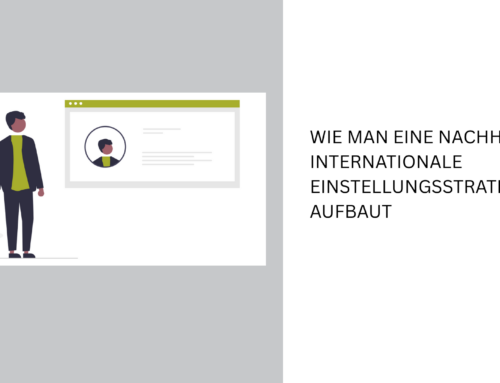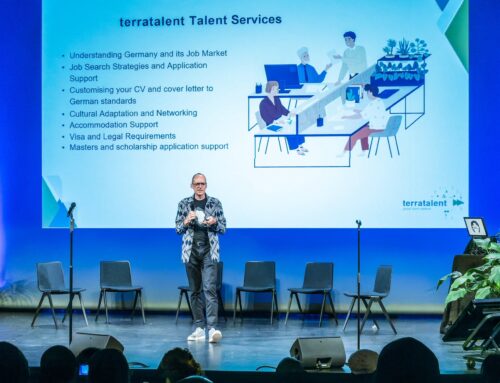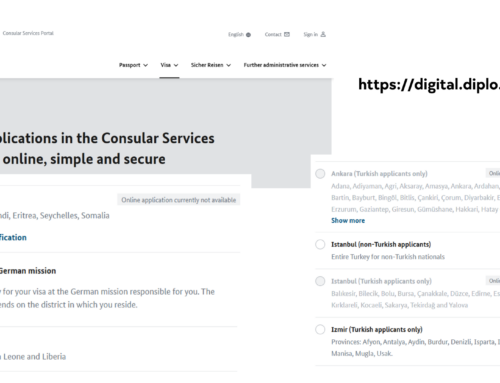Why should I outsource my IT project to Morocco?
The German economy has become more digital over the past year, as the current Digitalization Index of the German Economic Institute (IW) shows 1. Nevertheless, Germany remains lagging behind in international comparison, ranking 23rd out of 64 countries.
According to the IW, Germany became somewhat more digital in 2024, but there were also setbacks in some areas. The internal company categories in particular improved. The products category saw particularly strong growth, as the portion of revenue generated by companies with digital products grew significantly in 2024.
The trend is also worrying: Since 2019, when it was still ranked 17th, Germany has almost continuously lost competitiveness in the digital sector.
In the study, the authors examine examples of what other countries are doing better. One topic is education. Germany, especially in the digital economy, is experiencing a significant shortage of young talent, and leadership positions are either unfilled or inadequately filled, particularly in government agencies or government-related service providers. Two examples in Germany are schools, where the teacher most knowledgeable about IT typically becomes the designated IT officer. The same applies to government agencies such as public prosecutors’ offices, where a lawyer who works with computers in their spare time quickly becomes the project manager for the introduction of digital files.
“Skills to Advance” program (Ireland), which the EU considers exemplary, as a potential solution. The program offers qualification and retraining courses with a focus on digital education. On the one hand, the 16 responsible regional educational institutions specifically target employees who have a need for further training. These include, for example, low-skilled workers and employees over 50 who require (additional) digital skills to perform their jobs. The courses offered are partly online, partly in-person, and are organized flexibly, allowing participation outside of working hours.
The instrument therefore aims to further leverage domestic potential – which makes perfect sense. Another solution lies in the growing talent pool in Africa. Governments there have recognized that education, and especially digital education, offers a huge opportunity to transform Africa into the world’s IT powerhouse. Examples include the One Million Coders Initiative in Ghana and the AI Skills for One Million Ugandans mission of the Ugandan Ministry of ICT and National Extension. Both countries have rapidly growing young populations.

African talent pools as a solution
In addition to these educational projects, some regions are attempting to establish themselves as BPO and ITO service providers in Germany and Europe. One example is the GBS Growth Initiative, which specifically strengthens local providers, attracts foreign investors , and organizes promotional tours in Europe. The Munich-based IT company MaibornWolff was persuaded years ago and has since founded its own large company, Ojemba , in Kigali, which serves clients such as Miele. The Indian BPO service provider ttec has just opened a large office in Kigali.
Why Kigali?
In a profile, the Indian company explains its decision for Kigali and the following reasons 2:
- Kigali is the sixth safest country in the world.
- Kigali ranks 38th in the global business friendliness category and 2nd in Africa.
- Kigali is the safest city in Africa.
- Kigali ranks 10th in the Technical Helpdesk Support category (GBS World Competitiveness Index 2022).
- highly qualified, digitally savvy and motivated employees with in-depth knowledge of AI and CX
- Ongoing government investments in infrastructure and the development of digital skills.
The government funding agency in Rwanda, GBS, summarizes it as follows:
- Ease of doing business
- Strong infrastructure
- Bilingualism and digital skills
- Impact sourcing goal
- lifestyle
At the end of May, the German Development Cooperation (GIZ) invited ten BPO and ITO service providers to Berlin for the GITEX Summit and organized a roadshow to German customers. On the German side, the major outsourcing specialists Teleperformance and Concentrix , both long-standing players on the continent, reported on their positive experiences.
All ten service providers pitched for German customers on the big stage at GITEX.
From Ethiopia : Minab IT Solutions , Mereb Technologies , R&D Group . From Ghana : AmaliTech , DevOps Africa , eSAL , FOURTH – IR , Turntabl . From Kenya : Elewa , iTalanta , Oasis Outsourcing , Yelbridges . From Morocco : CGI , Doosys , Sispay , Sofrecom .
From Rwanda : Awesomity , Ojemba .
Here are some examples of the reasons given by the service provider NGBS from Morocco:
- Second most attractive African country for investors
- Current Global Services Location Index (GSLI) rank 28
- English, Spanish and French – competitive and multilingual workforce
- Stable environment
- Worldwide IT infrastructure and ecosystem
- Fast access to a 2.5 billion consumer market
- Young, diverse, motivated and high-performing talent pool
- Leader in the energy transition
- Implementation-oriented
Against this background, large German and European companies such as Beiersdorf (Marketing, Sales, HR) , Bosch (Sales, HR) and Nestle (Marketing, Sales, HR, payroll ) have significant BPO units in Morocco.
If one compares this list with the reasons given for Kigali, it is obvious that, at least in the application, the advantages and disadvantages of the individual locations are difficult to distinguish.
What factors should be considered?
Basically, you should look at three areas in order to be able to at least roughly classify the locations.
- Political stability
- Infrastructure
- Data security
- The German trade organization GTAI still certifies that Africa has a fragile political structure 3. High national debt, inefficient administration, and corruption continue to hamper economic success in many African countries. The G20 initiative Compact with Africa ( CwA ) aims to create a better business environment. Twelve African countries are using the initiative to improve the framework conditions for sustainable private investment and their economic competitiveness. The World Bank has developed various indices to measure political stability. However, many Africans complain that the factors developed in established industrial locations do not do justice to African characteristics.
- Key factors to consider in this area include 4G or 5G coverage and the level of fiber optic network expansion. Transportation infrastructure also plays a role; in some cities, commute times are very long due to overcrowded streets. All locations outdo each other in terms of facts and figures. Indeed, power outages are still commonplace in many parts of Africa, although their frequency and duration are decreasing due to investments. Many African governments censor the internet, especially around election times. This weakens democracy and the economy, as was the case during the unrest in Kenya in 2024, when many young people protested against the government.
- The operational presence of German and international providers suggests that Rwanda offers favorable conditions for doing business. These companies can comply with various regulatory and data protection requirements (such as GDPR, CCPA, HIPAA, and the Rwandan Data Protection Act). Data transfers to Rwanda from the EEA are possible using the EU standard contractual clauses published by the European Commission.
Kenya, as a second example, is also quite advanced in this regard. The Data Protection Act (DPA) has been in force in Kenya since 2019, the equivalent of the General Data Protection Regulation (GDPR) applicable in the European Union (EU). Both the DPA and the GDPR are based on the same principles for protecting personal data. This is one of the reasons why American tech giants are all present in Africa, especially in Kenya, and have opened large data centers and innovation hubs there. Google announced its one billion investment program in Africa back in 2021. 5This is also an indication that Africa is further establishing itself as a digital alternative.
rt.

Conclusion
In conclusion, there is no clear recommendation or preference for any of the locations discussed here. It simply depends on the project being implemented. However, it is also clear that there are alternatives to the traditional outsourcing locations in Eastern Europe and Asia. There is a virtually inexhaustible pool of young talent, some of whom are native English speakers and often share the same time zone as Germany. A second look is definitely worthwhile. We are happy to help you find your way.
P.S. We’ve chosen Uganda ourselves and are cooperating with the company Kolaborate, with whom we’ll jointly offer data analytics solutions in the future!

